#posthumous marriage
Text
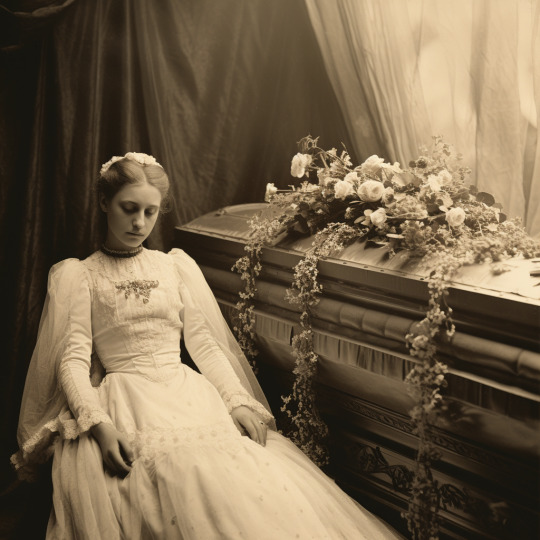
Necrogamy was the practice of marrying a dead person, also called posthumous marriage or ghost marriage. This was legally recognized in France in 1804 to allow marriage to fallen soldiers, but was practiced extralegally elsewhere in Europe.
#ghost groom#necrogamy#posthumous marriage#posthomous#ghost marriage#coffin#19th century#ireland#france#bride#ghost#deceased#departed#macabre#victorian
9K notes
·
View notes
Text
someone on lofter has definitely written 冥婚 joongdok right like both of them die way too many times to not do something with it
#asto speaks#orv mumbles#im like. brain farting on the english word hold on#it's just such an oddly specific trope that i'm weirdly attached to for some reason#POSTHUMOUS MARRIAGE that's the word#look i just really like the 囍/纸嫁衣 style of like. horror tragedy romance#.......maybe i just like the colour red.#tldr both yoo jonghyuk and kim dokja die a lot and i think they should get married about it
2 notes
·
View notes
Text
Posthumous Admiral's Log - Entry 30
I must say I am rather worried about this Massive Amorphous Vortex of Doom.
Firstly, the Imperial Board of Acronyms rejected the acronym “MAVD” on account of the fact that the Managerial Association for the Vacationing Deathtroopers already exists. Now, we have had to resort to vague terms like “vortex”, which is very unspecific, considering how many of those we’ve got scattered throughout the afterlife.
Secondly, the vortex appears to be growing. (Of course, this is only an estimate. No one has been able to put a meter stick near it for proper measurement without said instrument being sucked into the vortex.) I am beginning to think that perhaps feeding the vortex Rebel Scum souls was not a wise idea after all. I ought to have known better than to trust anything Jerjerrod suggested. Now, I only hope the entire afterlife will not pay for the consequences.
I questioned Needa further as to the ritual he used for the ill-fated exorcism which created the vortex. It would appear he mistook “Sith Eternal” protocol for a “Sith Exorcism” protocol based on a collection of ancient runes. When I asked him how he happened upon these runes, he explained to me that Jerjerrod found them in the ruins of the old Death Star.
I am not in the least bit comforted by this news. I fear that we may have summoned a sinister force of great power to this dimension. Considering we already have Lord Vader wandering about, we really do not need another entity of this nature.
I thought at first to research the Sith magic that conjured the vortex in hopes of finding a solution, but I am reluctant to delve any further into those runes. For all I know simply reading them may attract some kind of archaic negative energy to this realm.
Now, there is nothing more I can do but dwell on these worries in solitude and hope none of my fears will come to be. At times, I wish I could speak with someone on this subject, but I do not know who. I doubt Max and I are at the point in our relationship where we can discuss such things as emotions. I have always been a firm advocate of the COMPNOR policy on the unsavory nature of emotions and how they are best kept confined, like Rebels. Relationships are most stable when they’re founded on mutual respect for the Empire with occasional excursions to kriff in an AT-AT. I need to remind myself of that, otherwise I’ll start fantasizing about discussing my feelings and other inappropriate conduct.
- Admiral Piett
Read the full log on AO3.
#posthumous log#veers x piett#emotions have no place in romance as far as the empire is concerned#either it's a marriage of convenience#or some secret thing where you go off and kriff in an at-at#piett needs help
3 notes
·
View notes
Text


0 notes
Text
Tolkien said that one of the things he didn't like about LotR was that the book was too short.
In a way I agree with him, because I found the ending so rushed [others always say "that evil" is destroyed in the middle of the book and everything after is just an long epilogue] and yet I found it rushed. And I wanted a lot of the appendices to be narrated chapters, it was interesting to see what the lives of each member of the Fellowship were like in the appendices, but I wanted chapters about.
And I would also like to have seen, narrated chapters, of the Battle of Dale, with Brand (Son of Bain, son of Bard) and Dáin fighting three days against enemy armies and dying. I wish had read a narrative of Thranduill and Celeborn uniting in Mirkwood and destroying Dul Guldur once and for all, and then dividing the region between them.
When LotR informs that the others would not come to battle because they already had war at their gates, I wanted the plot to split to show this in other parts.
A better development of the romance between some characters would also be interesting, the Tale of Aragorn and Arwen already makes me cry every time I read it, but I feel like it would be more interesting as a narrative than an appendix. If their marriage went on for another 100 pages I wouldn't mind. And I would like Arwen and Elrond's conversations not to be just subtext.
Faramir and Éowyn, I really love them as a couple, but I think more pages dedicated to their romance would also be interesting. Sam and Rose? I would have liked it more if we had more mentions of the girl throughout the journey, if Sam mentioned her more often throughout the plot, so maybe the end wouldn't seem so sudden.
When I say that don't like the development of the "love pairings" in LotR, it's not that I don't like the characters or the ships, but that the narrative wasn't enough for me.
Don't get me wrong, I love LotR. But I wanted there to be more to be "narrated" than "told" or "implied" or "pointed out in the appendices."
Yes, I also thought the book was too short.
There is a lot between the lines that could come to light more. It could have been another thousand pages. And perhaps it still wasn't enough. How could anyone think that LotR is a very long book?
Maybe that's the problem with Tolkien creating such a complex Universe with such interesting characters: no matter how long the book was, it would never be enough. Because as a fan, I would always want more and more of it. More immersion at all points.
Is it always like this with authors who create universes that seem so incredible to read? And when it's gone, it's not enough to fill the void.
And all the posthumous books, like The Silmarillion, or Unfinished Tales (and others), with the tone of "organized drafts" and "told" instead of narrated most of the time, weren't enough for me. I still wanted so much more. And I never will have it.
Don't get me wrong, I liked the posthumous books, I think Christopher Tolkien did a good work. But still, when reading, I always asked myself "if this had been published by Tolkien during his lifetime, would it have been like this? What would he have changed yet? What would he have more refined?".
Because, as much as other fans like to see posthumous books as a "canonical" part of the work, like complements. I can only see as unfinished drafts, which it truly are. No matter how well organized are, even The Silmarillion is just a draft organized in the best way, Christopher T says this.
The letters don't count for me either, because Tolkien changed his mind about several things, just like in the drafts.
So I feel that, although the Tolkien Universe is vast, there are a lot of drafts and letters, and little work is actually completed.
I liked the posthumous books and the fact that they expanded the universe even further and provided more information. But it becomes a “vicious cycle”, as the information contained there also brings more desire for it be narrated by Tolkien himself in an book he finished (but will never be! Unfortunately).
And that saddens me. Because I wanted so much more. And Tolkien didn't live long enough to give it. In the end, it's a mix of happiness for what Tolkien gave, and sadness for what he still could have given.
#lord of the rings#lotr#the fellowship of the ring#the return of the king#tolkien books#eowyn#faramir#aragorn#arwen#elrond#thranduil#celeborn#the silmarillion#unfinished tales#the hobbit
239 notes
·
View notes
Photo

Helen (Play)
Helen is a Greek tragedy by Euripides (c. 484-407 BCE). It is usually thought to have first been performed at the Great Dionysia of 412 BCE and was part of the trilogy that included Euripides' lost Andromeda. Helen recounts an unusual version of the myth of Helen of Troy in which a phantom decoy, an eidolon, replaces Helen in Troy while the real Helen awaits the end of the Trojan War in Egypt. Ever since its first performance, Euripides' Helen has puzzled and fascinated: in his Thesmophoriazusae, performed the year after Euripides' Helen, Greek comedy playwright Aristophanes would parody the “new Helen” (line 850). To this day, scholars continue to debate many aspects of Euripides' Helen, including its jarring juxtaposition of the comic and the devastating, its contemporary relevance, and its message about the nature of truth and reality.
Euripides
Born around 484 BCE, Euripides was the youngest of the three Athenian tragedians regarded as “canonical” since antiquity (the other two are Aeschylus and Sophocles). Of the 90 or so plays he composed during his lifetime, 18 survive in full (one of the tragedies transmitted under his name, Rhesus, is almost universally regarded as spurious). There are thus more surviving plays by Euripides than by Aeschylus and Sophocles put together, demonstrating that after his death Euripides soon eclipsed his two predecessors in popularity.
Little enough is known about Euripides' life, and what little information we have is obscured by fable and fancy. He was born to a family of hereditary priests on the island of Salamis, near Athens. He was said to have married twice, though both marriages ended acrimoniously. From one of his marriages, he had three sons, one of whom became a tragedian too. Above all, Euripides was reputed to have been a recluse, famously living in a cave in Salamis (which became a shrine to him after his death). Eventually, he retired to the court of King Archelaus of Macedon, where he died in 406 BCE.
Euripides is best known to us through his plays. These were performed at various festivals, chiefly the Dionysia and Lenaia, at huge outdoor theaters. Most of Euripides' plays were performed at Athens for audiences of locals and tourists, though some of his works would have been produced elsewhere: in Macedon, where Euripides spent the last years of his life, or Sicily, where he was apparently very popular. Even during his own lifetime, Euripides was known as the most adventurous and avant-garde of the great tragedians. This did not always translate to success, however. Over a career that spanned half a century (Euripides produced his first trilogy around 455 BCE and continued to compose tragedies until his death) Euripides won the first prize just four times during his life (a fifth time posthumously). On the other hand, Aeschylus was said to have been victorious 13 times and Sophocles 18. Euripides' tragedies – full of desperation, novelty, and relentless questioning – were sometimes regarded as sensational and even impious. But Euripides' fame and popularity grew after his death while that of Aeschylus and Sophocles declined. Today there are those that think of Euripides as the greatest of the Athenian tragedians.
Continue reading...
68 notes
·
View notes
Text




"Hey, hey, hey. Fuck my life"(c)
That's the last thing I expected from myself, that I would sketch the humanization of a character who so categorically does not attract me by design. Seriously, is his head a flat-screen TV? That's how it's easier for me to take Vox seriously.
As we know, Vox died in the 50s. I love this era.
Headcannons:
📺 Died, literally burned out at work. To catch a fatal heart attack shortly before forty, you need to make an effort, but Vox is diligent. He did it.
He worked, of course, as a TV presenter.
📺 Died on the air. That's partly why it looks like this.
📺 Since in the 50s, in order to be at least some kind of media personality, it was necessary to have at least a passable, pleasant appearance (we are talking about television), he took his new posthumous appearance very hard. He still has a complex, but he hides it perfectly.
📺 Hidden sexist, 50s! But admitted Velvette in the end.
📺 Divorced three times. More precisely, he died in the process of the third divorce.
📺 Coffee, whiskey, sleeping pills, cigarettes. Strangely enough, but he almost quit smoking after his death. He had enough, sort of.
📺 Extremely nervous work during his lifetime, wild competition and underhand intrigues. That's why he's paranoid.
📺 A workaholic. A careerist. He is extremely vain and scrupulous about his status. A painful ego.
📺 Vox loved dancing, but where would he find time for it?
📺 He is categorically not a womanizer, despite his profession in the media. Practically monogamous by default. That's partly why there are three marriages, not just affairs.
📺 There is a nervous tic in my humanization. Under that scarred and red eye.
📺 A dead and extinct red eye, a tenacious and cold blue one.
📺 Deeply depressed.
📺 Coffee in liters. He likes whiskey from alcohol.
📺 If desired, he will intimidate his employees almost as well as Val.
📺 Without a wristwatch, he feels undressed, and it doesn't matter that there is a watch in the phone)
📺 Alastor is the canonical theme of "code red". That awkward case when you weren't even in a romantic relationship, but you still act like exes. facepalm And it's fucking noticeable. To everyone.😅
#hazbin hotel#hazbin hotel fanart#hazbin#hazbin alastor#hazbin hotel vox#hazbin vox#vox#vox hazbin hotel#the vees#radiostatic#staticradio#vivziepop#vox headcanons#humanization
107 notes
·
View notes
Text
Why do Dany antis think Dany gave herself her titles? Like the amount of times people rant about how she must be "so conceited" to have all those titles, like do they not know how titles work in ASOIAF? This is rhetorical of course, I know the answer, hatred of her character and that shit show. So, since D&D chose not to explain to them in simple terms how titles come to be and how Dany earned hers, I will (don't worry, I'll use small words since they so clearly struggle with media literacy).
So how do titles work in ASOIAF? Simple, their awarded by others. If someone gives themself a title it's not acknowledged by others, simple Medieval European rules. We see examples in Aegon the Conqueror, Maegor the Cruel Jaehaerys the Conciliator, Rhaenyra the Realm's Delight/Black Queen, Aegon the Usurper, Aegon the Unlucky, Baelor the Blessed, Daeron the Young Dragon, Aegon the Unworthy, Aemon the Dragonknight, Daeron the Good, Aegon the Unlikely, and Aerys the Mad King. Yes, I decided to do all Targaryen examples, because why not use Dany's family.
Each of these titles were given because of the attributes or accomplishments of their owners. Aegon I conquered the Seven Kingdoms, Maegor usurped and killed his family members (and much more), Jaehaerys stabilized the kingdom, Rhaenyra was greatly loved by the realm as a child and her faction were called the Blacks after her clothing. I could explain everyone on the list, but that would take forever and we have a lot to get to. However, I believe I have made my point about titles, they are given, sometimes posthumously, by those around them because of what that person has done or what they're like.
Dany's titles are no different, she earned them and/or was given them by those around her. These titles are: Stormborn, Princess of Dragonstone, Khaleesi of the Great Grass Sea, the Unburnt, Mother of Dragons, and Breaker of Shackles/Chains. I'm going to go in order and say how she got these titles, since apparently that needs explaining. I'll even go into Queen of the Seven Kingdoms (etc) and Queen of Meereen, in case someone wants to bring that up.
Stormborn was given to her by her mother, Queen Rhaella, upon Dany's birth, same for Princess of Dragonstone actually. Dany was born on the night of a terrible storm that destroyed what was left of the Targaryen fleet. She was also born after her family had been almost wiped out and Westeros was in the middle of massive civil upheaval. Hence, Stormborn. Now, Rhaella and Viserys both believed he and Dany were the rightful heirs to the throne after Aerys and Rhaegar's deaths, so Viserys was crowned king of the Seven Kingdoms and Dany was made his heir until he had children. The heir to the throne was traditionally given the title of prince/princess of Dragonstone, so that's why Dany was given it.
Fast forward thirteen (or sixteen in the show) years and Dany is married off to Khal Drogo, this marriage makes her a Khaleesi of the Great Grass Sea. And since the position of Khaleesi is a bit of a lifetime thing, since after the Khal's death they join the Dosh Khaleen. Therefore, Dany will carry the title of Khaleesi for the rest of her life. She also became the leader of her own Khalasar, making the female equivalent of Khal an appropriate title.
But before she gained her Khalasar, she earned the titles Unburnt and Mother of Dragons on the same occasion. This was, of course, when she woke her dragons from stone. Dany walked into the fire of Drogo's pyre and was unscathed (except for her hair in the book). Because of that her people called her the Unburnt and told others. As for Mother of Dragons, Jorah and her Khalasar call her this first, then it spreads to Qarth, Astapor, and eventually Westeros. As for where it came from, well, she literally hatched three dragons that nursed from her (book).
Next up, the Breaker of Shackles/Chains. This is a title Dany earned after the events of Astapor, where she freed the Unsullied and helped lead a city-wide slave revolt. More specifically this name came from her order to the Unsullied, "Strike the chains off every slave you see," After the events in Astapor, the Unsullied and other slaves named her the Breaker of Shackles/Chains. This name spread across Slaver's Bay, to the rest of Essos and Westeros. Dany makes this name into an official title as a warning to the slavers, she is coming to free the people they enslaved. In Meereen, it's used as a reminder of the new order she was instituting, one that wasn't built on the backs of slaves. In Westeros it's a sign of her achievements and shows her intentions, to help the downtrodden and oppressed, even though the show decided to throw that out the window to "subvert expectations".
Now, Queen of the Seven Kingdoms, etc, and Queen of Meereen are the only titles that it could be argued she gave herself. However, Queen of the Seven Kingdoms is her inheritance, at least she was taught it was (if you want to argue about new dynasties and such). She was Viserys' heir, so, when he died, his titles and responsibilities were passed to here. This means that technically the title was given to her lol, but she did choose to pursue it. After all, she was raised by Viserys to believe it was not only her birthright but also her duty to retake Westeros for first Rhaego, then herself. We see this line and thinking time and again in her chapters,
"If I were not the blood of the dragon...this could be my home." (AGOT) This is said about staying in the Dothraki Sea, and the same quote comes up in Meereen. Dany wants a simple life, the house with the red door, but she rejects it because she believes it's her duty to take the IT, her responsibility to her family.
A similar sense of duty is what drives Dany to take Meereen and rule it. At this point Yunkai has fallen back into slavery and Astapor is falling apart, so Dany learns from her previous choices and chooses to stay in Meereen to try to ensure the slaves she freed there don't fall back into slavery. Now the show really fucked up her storyline in Meereen, by removing the threats of Yunkai, Qarth, and Volantis as well as greatly reducing the actions of the Harpy and just straight up trying to make Hizdahr a "good guy". But both in the show and the books, Dany takes Meereen because of the rapant injustice of slavery, why is that so hated by certain parts of the fandom? Well the answer to that is because hatred of Dany is so deep in some people that they will demonize everything she does, even the things that are objectively right. This mentality causes them to be willfully blind to her titles and their significance.
Dany's titles were made to set her apart from her ancestors and contemporaries. The show damaged this by neglecting to actually show how titles work and by not giving any new ones to people who deserve them (Jon Snow for example). But either way, her titles show how Dany has done more in her sixteen years of life (about 20-22) than almost anyone else has done in their 40+. Her titles are signs of how respected and loved she is by her people, they are reasons her enemies should fear her, and they demonstrate how inspiring her character is, no matter how the shit show ruined her.
#daenerys targaryen#anti dany antis#anti got#anti d&d#asoiaf#fandom critical#queen daenerys#asoiaf meta
90 notes
·
View notes
Note
I'm having trouble choosing between Dick and Tim for the ask game, so instead, I choose Janet!
janetttt <3
Headcanon A: realistic
janet spoke to divorce lawyers three times in her marriage. once was a few months after the circus when her and jack's marriage first started to break down because jack checked out emotionally from the marriage after witnessing the death of the graysons. the second was when tim was 9, they got in a bad fight over jack's tendency to make deals and promises for the company at the gentleman's club without consulting her. the last was the last time they were home before their final trip. they'd long since moved into separate rooms. if they weren't fighting, they weren't talking. what kind of marriage was that? but she hesitated when it came time to actually file. the finality of it scared her, a bit. janet loved her family, after all. should she really upheave her entire life, or could they work it out one last time? if she gets divorced, she has to start everything all over again. she decided trying to save things was worth one last shot.
Headcanon B: while it may not be realistic it is hilarious
janet was big into babywearing when tim was an infant! it's how she could be the woman who could do it all--work & mothering. she had a ring sling with fabric made of vicuña and cashmere. it worked for a few months up until tim learned how to crawl & then there was no keeping him in any sort of carrier without very loud protest & all her meticulous plans to supervise her digs with tim on her back came crashing down to the ground where the fabric of her fancy ring sling also lay, trampled on by her toddler's feet.
Headcanon C: heart-crushing and awful, but fun to inflict on friends
bruce never told tim, but it was very easy to transfer him from boarding school to public school during the time he fostered tim while jack was in a coma. when bruce called the boarding school to get tim's school records transferred over to gotham heights high and cancel the enrollment in boarding school for next semester, the office informed him that there was no need to--his mother had already done exaxtly that about a month before her death.
Headcanon D: unrealistic, but I will disregard canon about it because I reject canon reality and substitute my own.
janet had started writing a book before she died about the history of gotham city. she was about 80% done with her manuscript. tim found it among his dad's belongings. tim gets the great idea he's going to finish it. it doesn't go well & he fails miserably. helena finds it, along with all of tim's scribbled notes, one day while she's at the nest to talk to him about a case, and can clearly tell he's struggling with it. she remembers that a coworker of hers has been trying to get published with a book of his own, but hasn't been able to get his foot in the door with any publishing companies. she surreptitiously leaves tim his name & contact info by the manuscript.
a few days later, the wayne foundation reaches out to her coworker--they're looking for someone to finish and clean up janet drake's book for publishing. they're offering a chance to get his foot in the door & some pretty sweet publishing connections if he takes them up on their offer. he gladly does, and janet drake's posthumous book tops the nonfiction bestseller list for weeks & helena's coworker scores a 3 book deal of his own. helena's just glad to see her coworker finally get the chance he deserves & to see tim happy. tim builds her a very sweet huntress car for her help. it's perfect. except for the fact that he gave it the license plate "P0P3MBL"
49 notes
·
View notes
Text

#funeral#casket#coffin#mourning#grief#marriage#wedding#bride#ghost groom#posthumous marriage#corpse groom#wedding night#necrogamy#victorian#vintage
6 notes
·
View notes
Text
as a continuation to my unofficial series of posts i sometimes call "everyone in the literary scene (& all influential people in general) used to be related or know each other & it led to some really weird coincidences"
john polidori was a writer and the assistant of the famous byron who was in a long relationship with teresa gamba, who was married to the much older count guiccioli; & earlier, john polidori's father gaetano polidori had been a writer and the assistant of the famous alfieri, who had been friends with that same count guiccioli! many have written about the similarities between byron & alfieri — & knowing byron's love for symbolism etc., it's likely that polidori's father's service to alfieri was one of the things to inspire him to place john in his service.
and then through his sisters marriage, john polidori was the (posthumous) uncle of writer christina rossetti and writer/artist dante gabriel rossetti. john's father gaetano published the first works of his rossetti grandchildren as well as the works of his father agostino ansano polidori, who was a writer and a doctor like john.
#john polidori#gaetano polidori#count guiccioli#teresa gamba#teresa guiccioli#lord byron#alfieri#christina rossetti#dante gabriel rossetti#history#english literature#literature#romanticism#vittorio alfieri#agostino ansano polidori
37 notes
·
View notes
Text
The spider/web sigil of Rohanne's house suits her so well. It fits the in-universe perception of her as this black widow femme fatale drawing husbands in to kill them (like a female spider cannibalizing its mate), while simultaneously representing how she is tangled in this web that is the legacy of her house as laid out by her father's will. After being forced into a succession of marriages starting at the age of 10, her father posthumously demands that she wed again within two years of his death or lose her position as ruling Lady of Coldmoat, all while the shadow of Lucas Longinch, the man her father left to "protect" her, looms large.
35 notes
·
View notes
Note
I am continuously perplexed at how a show as objectively bad and problematic as hotd keeps inspiring outstanding fanfics like yours and @gwenllian-in-the-abbey’s. Truly it’s a mystery to me, especially considering that the books covering the dance are supposed to be quite mediocre as well from what I’ve perceived. Just so you know,with that trailer out now I’m gonna completely blend out the events of the show and consider our fathers clad in red canon
@gwenllian-in-the-abbey AAAAAAAAAAAAAA, I think George's gonna order a hit on us:D
I'm glad you like our slightly destructive approach to teh canon. I'm mostly fueled by spite and my dislike for George's and HBO's complete disregard for the historical context of the stuff they draw their inspiration from (you can't do the Matilda vs Stephen showdown and expect the same sense of injustice, when your main conflict is about Viserys' imbecilic approach to rules, Rhaenyra's weak-ass claim and papa/dragons being her go-to solution to all her problems, Daemon being a chaos gremlin, Corlys' malignant ambition and the Hightowers being the only ones who actually care about the rule of law.)
A lesbian romance doesn't automatically turn a story into a feminist manifesto, nor does a girlboss who's treated by the narrative as the second coming of Christ. Context matters and it's a mistake to view the Dance through the lens of modern ideals about egalitarianism.
GRRM's hubris when it comes to "Aragorn's tax policies" is just another thing that enrages me and Gwenllian, because the man completely misunderstands the medieval legal codes. Just because they were complex that doesn't mean they were fucking contradictory on their own; no one wanted civil wars breaking out each time a monarch died.
Problems happened when two countries with generational beefs worked on two different principles of succession, ie. England (male-preference primogeniture) vs France (male-only primogeniture), or if there was some dynastic fuckery that completely messed up the clear-cut succession lines with usurpations and cousin marriages (Yorks vs Lancasters).
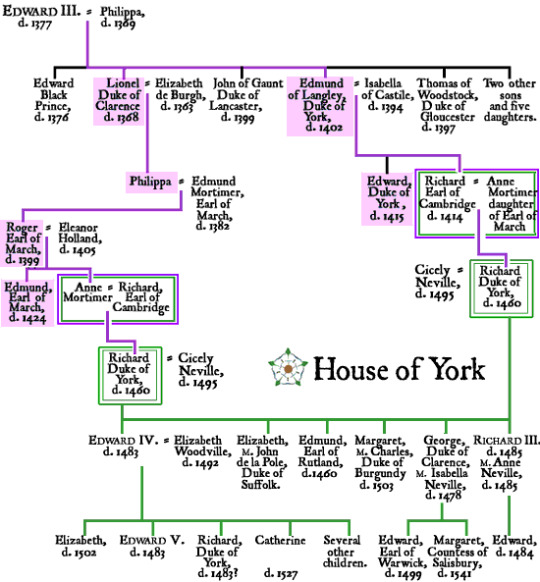
Had Richard II (the son of the Black Prince) died peacefully without issue, the succession would have followed through the line of the Duke of Clarence, with Edmund the Earl of March eventually becoming the king (and he was Richard's heir, btw).
But that's not what happened. The son of John of Gaunt usurped the throne and it was then passed down through his line, because he was the crowned king. Now, you can argue whether or not he had any right to do the usurpation in the first place and whether or not he was the legitimate king and you bet people back then argued about that too. This ambiguity is how you create a proper narrative about actually conflicting claims. The only thing propping up Rhaenyra against her brother is the fact that Viserys is a moron.
How the fuck can I take F&B seriously and without the Dead Sea's worth of salt, when it pretty much blows Jaehaerys' posthumous dick about his wisdom when he "let" the council of 101 decide the succession (while politely ignoring the fact that Jaehaerys' own claim is legit only in the cases of either full salic or semi-salic succession, ie male-only), while never once it calls out Viserys out on his extremely dangerous decision. He gets to die venerated as the peaceful grandpa and all the blame for his incompetence is piled on Aegon II and Alicent.
Let's go through the possible succession systems, shall we?
If we follow male-preference primogeniture, the legitimate line of kings ends with Aerea because she was the eldest child of Aegon the Uncrowned, Maegor's eldest nephew. Only after she and her sister die without issue, Jaehaerys can become the king. Jaehaerys' canon ascension works only because Rhaena gave up her daughters' claims. The next in line would be Aemon and after him Rhaenys. But that's not what happened.
If we follow the salic law (male only), the legitimate line of the kings goes Aegon I -> Aenys I -> Aegon Uncrowned -> Jaehaerys I -> Viserys I -> Aegon II. This is probably what Jaehaerys wanted to ensure, since he challenged Maegor's kingship in the first place.
If a crowned king can choose his heir, then Jaehaerys was never a legitimate king and Aerea was the true queen, because Maegor, who had won his crown in the trial by combat, chose her as his heir.
What about the principle of seniority? Cognatic seniority where men and women have equal claims is out of the question since Aegon I was the crowned king, not Visenya. Male-only seniority would go Aegon I -> Aenys I -> Maegor I (uncontested!) -> Aegon Crowned This Time -> Viserys the Not Tortured to Death -> Jaehaerys I -> Aemon (only if his uncle Viserys has no issue) -> Baelon -> Vaegon -> Viserys I -> Daemon (EW).
Notice the distinct lack of Rhaenyra.
Team Black keeps mentioning the widow's law, but that's a bulk of nonsense. I suppose the misunderstanding originates from a (willful) misinterpretation of this passage. The book says:
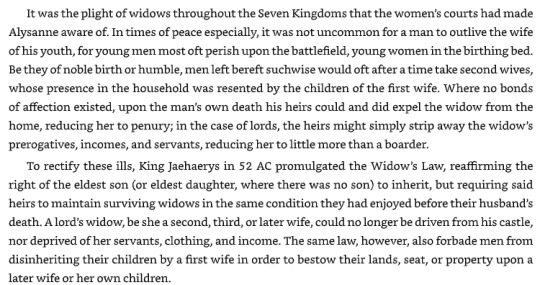
Now, I highly doubt Jaehaerys intended for the law to mean that a daughter from the first marriage should come before the sons from the second. The wording is a bit unlucky, but I suppose the intention was to establish the legal position of the second wife and her children as united with the position of her step-children - she has the same duties towards them as if they were own, and the same goes the other way. Which would make sense. Because otherwise, no one would be desperate enough to marry a widower with daughters. Since we know that title and land ownerships have remained in the same families without changing hands once or twice since the implementation of the law, I really doubt the team black's literal interpretation of the passage was the one intended. Ffs, Viserys was pushed to marry again because he had only one daughter, meaning, this law wasn't viewed the way the Team Black wishes for. And I'm not even delving into the fact that this would be a female inheritance hack penned by Jaehaerys, if that was the case. Talk about ooc.
So, yeah, we're taking Gyldayne's interpretation of the past with so much salt our hearts are gonna fail.
#dance of the dragons#aegon ii targaryen#rhaenyra targaryen#viserys i targaryen#grrm critical#Aragorn's Tax Policy#Rhaenyra had no right to the throne and you know it#asks#our fathers clad in red
59 notes
·
View notes
Text


💫Okay, I came with a new interesting thing from Lilith х) They never hid that Thaden is a canon
Lilith: Why are you single?
Thane: The public views forbid me from expressing my love
А: Posthumous homosexual marriage. Really difficult Thane...
Lilith, to A: you made me laugh to death
В: A secret that cannot be revealed...
29 notes
·
View notes
Text
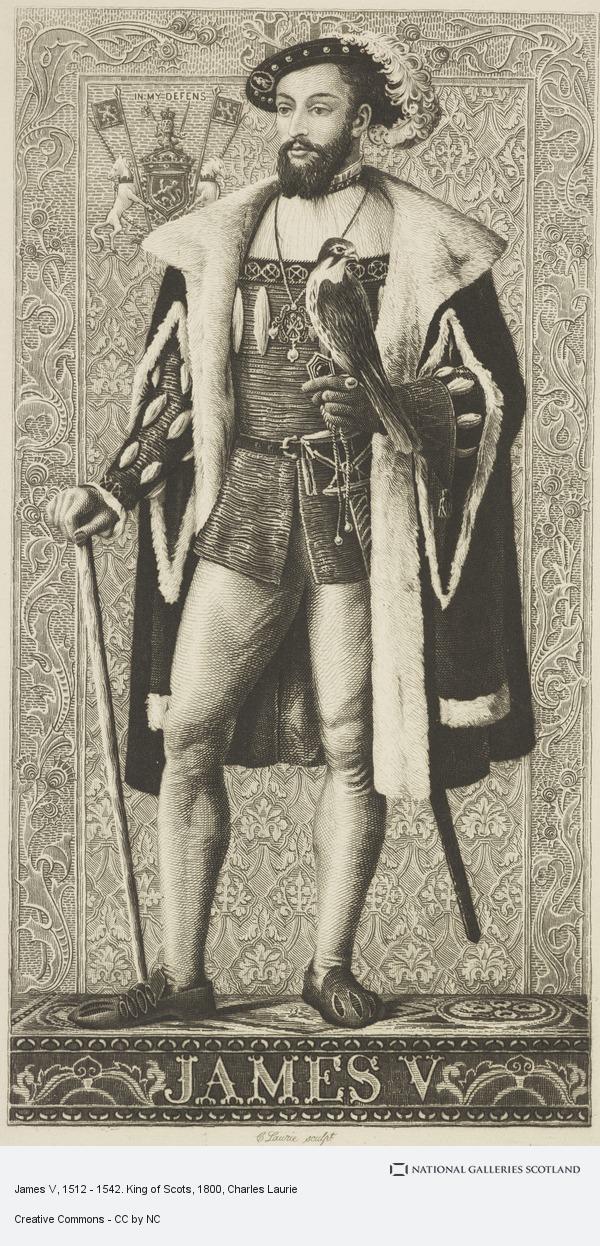

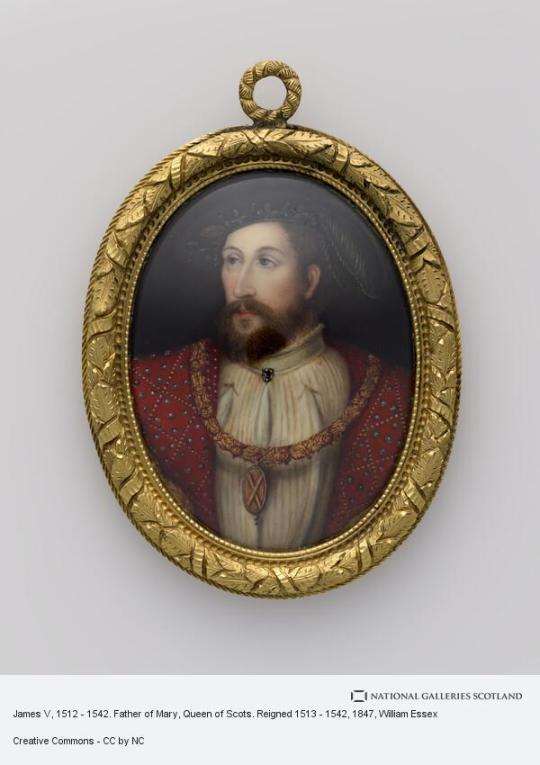
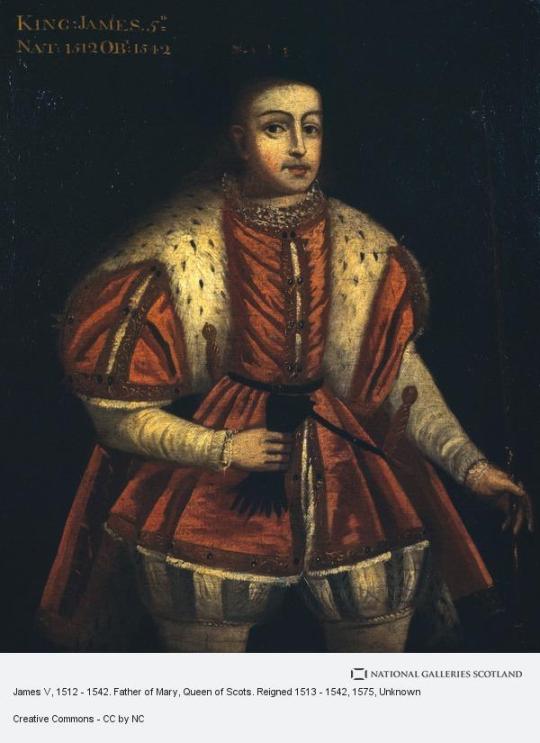
James V of Scotland was born on 10th April 1512.
James was son of King James IV and his queen Margaret Tudor, a daughter of Henry VII of England, and was the only legitimate child of James IV to survive infancy, it was through this line that Mary Queen of Scots based her claim to the throne of England, and indeed her son, who took the throne after Elizabeth died.
James was born at Linlithgow Palace and baptised on April 11th, receiving the titles Duke of Rothesay and Prince and Grand Steward of Scotland. He became king at just seventeen months old when his father was killed at the Battle of Flodden Field on 9th September 1513. James was “crowned” in the Chapel Royal at Stirling Castle on 21st September 1513.
During his childhood, like so many of the Stewart monarchs, the country was ruled by regents, first by his mother, until she remarried the following year, and then by John Stewart, 2nd Duke of Albany, who was next in line to the throne after James and his younger brother, the posthumously-born Alexander Stewart, Duke of Ross.
Other regents included Robert Maxwell, 5th Lord Maxwell, a member of the Council of Regency who was also bestowed as Regent of Arran. Queen Margaret´s tempestuous private life complicated her son´s childhood, and after she divorced her second husband, Archibald Douglas 6th Earl of Angus, the Earl kidnapped young James. For over two years he held him as a virtual prisoner, showering him with gifts and introducing him to a round of unsuitable pleasures. James loathed him and finally managed to escape in 1528 and assumed the reins of government himself.
James´ personal rule began by savagely pursuing his opponents and he hounded the Earl of Angus out of Scotland. James combined suspicion of nobles with a popular touch, travelling anonymously among Scottish people as the ´Gudeman o´Ballengeich´. John Knox described him thus: ´he was called of some, a good poor man´s king; of others he was termed a murderer of the nobility, and one that had decreed their whole destruction´.
A highly strung, intelligent man who alternated between black depression and bouts of feverish energy, James had already fathered at least nine illegitimate children by a series of mistresses by the time a marriage was arranged for him.
He married Madeleine, daughter of Francois I of France, and the young couple returned to Scotland in May 1537. The Princess was a fragile woman, and the Scottish climate did not agree with her she died in her husband’s arms on 7th July 1537, seven weeks after her arrival in Edinburgh.
In governing, James increased his income by tightening control over royal estates and from the profits of justice, customs and feudal rights. He also gave his illegitimate sons lucrative benefices, diverting substantial church wealth into his coffers. James spent a large amount of his wealth on building work at Stirling Castle, Falkland Palace, Linlithgow Palace and Holyrood and built up a collection of tapestries from those inherited from his father.
In 1538 he married another French lady, the widowed Mary of Guise, tall, well-built and already the mother of two sons. She had two more sons by James but they both died in infancy within hours of each other in 1541. The death of the Kings’ mother in 1541 removed any incentive for peace with England, and war broke out.
Initially the Scots won a victory at the Battle of Haddon Rig in August 1542. The Imperial ambassador in London, Eustace Chapuys, wrote on 2nd October that the Scottish ambassadors ruled out a conciliatory meeting between James and Henry VIII in England until the pregnant Mary of Guise delivered her child. Henry would not accept this condition and mobilised his army north.
James was with his army at Lauder on 31 October 1542. Although he hoped to invade England, his nobles were reluctant. He returned to Edinburgh on the way writing a letter in French to his wife from Falahill mentioning he had three days of illness.
Next month his army suffered a serious defeat at the Battle of Solway Moss, a loss caused by infighting within the nobles on who was in command.
He took ill shortly after this, on 6th December; by some accounts this was a nervous collapse caused by the defeat, although some historians consider that it may just have been an ordinary fever. Whatever the cause of his illness, he was on his deathbed at Falkland Palace when his only surviving legitimate child, a girl, was born.
Sir George Douglas of Pittendreich brought the news of the king´s death to Berwick. He said James died at midnight on Thursday 15 December; the king was talking but delirious and spoke no "wise words." Having said that, history reports he uttered the following; 'It cam' wi' a lass, and it will gang wi' a lass,' meaning that whilst the Stewarts came to power through marrying a princess, the Stewart line would end with his daughter as queen. Of course this wasn’t true so I wonder to myself at times why such importance seems to have been placed on his words through the centuries.
He was buried at Holyrood Abbey alongside his first wife Madeleine and his two sons. The tomb was probably destroyed during the Rough Wooing in 1544, they were again “violated” at the end of James VII reign when the people of Edinburgh rioted. Queen Victoria arranged for the vault to be repaired.
There was another story regarding the grave of James V that happened in 1683, read about that on the great web pages of Dr Mark Jardine here https://drmarkjardine.wordpress.com/.../the-tomb-of.../
23 notes
·
View notes
Note
So how are gay rights like in palestine?
Liberals will be like "Gays were persecuted under Hamas dictatorship, so it's better if we starve and bomb them instead. Can't be persecuted if you're fucking dead!"
How do you think Palestinian Gays will enjoy marriage equality? Do you think they're gonna be married posthumously or what?
#Palestine#Gaza#radical feminism#radical feminists do interact#radblr#radical feminists please touch#I mean if you have any serious criticisms of my take then please bring it#but that's just ridiculous#Israel#Woke imperialism#gender critical#feminism#terfblr#gc feminism#radfem safe#genocide#stop the genocide#ceasefire now#stop genocide#support palestine#ceasefire
25 notes
·
View notes